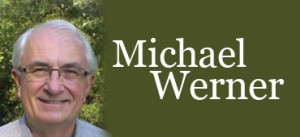The Danger of Scientism

I’ve been surprised at how many people I’ve met in the secular movement who dismiss fiction, saying they’re only interested in reading nonfiction and, more specifically, important scientific books. For their part, some of the “New Atheists” have edged nearer and even crossed over to scientism in their writings, overvaluing the ability of science to inform and guide us in how to live our secular lives.
This is problematic for humanists, who have been some of the few willing to stand up for reason and science in our neo-romantic, postmodern, religion-dominated times. We don’t want to appear to disparage science. Still, history calls for a balanced, interdisciplinary approach to humanism. The humanities have much to inform us and we disregard them at great loss, as humanism represents the best of both the Enlightenment and the Romantic traditions.
Fourteenth-century Renaissance humanism emerged out of the Dark Ages with a focus on human welfare and potential. The high aspirations were inspired by the classical literature of Greece and Rome. The Italian scholar Francesco Petrarca heralded our potential for progress and higher culture focused on humanity, not God. The Renaissance gave great importance to the artistic community and benefactors like the Medici family helped advance our cultural civilization.
Why are the humanities important? What value does music, literature, art, drama, architecture, and poetry provide us other than pleasure? This perennial question has been answered many times, but we still seem to forget that Shakespeare tells us more about human character than most psychological science, that Greek sculpture reflects our highest visions of the human form, and that Samuel Barber’s Adagio for Strings can musically send us into the depths of existential angst, while gangster rap speaks to the angst of urban despair. Charles Dickens’ marginalized characters inhabit our minds long after reading them, the aria “Un Bel Di” in Puccini’s opera, Madama Butterfly, tugs at our heartstrings with the tale of abandoned love, and no one needs Enlightenment rationalism to understand the horror of slavery after seeing the movie Twelve Years a Slave. (It becomes a visceral awareness.) None of these are examples of scientific learning. They are experiential, transformative lessons separate from “head-only” thinking.
Put another way, we can rationally “know” things but art makes them real, immediate, and makes us emotionally aware. Great art holds a mirror to our selves, to life, and to society in ways no data can. As Albert Camus said, “If the world were clear there would be no need for art.” Maybe as George Bernard Shaw said, “Without art, the crudeness of reality would make the world unbearable.” Yes, art entertains, but it also opens doors to knowing and to awareness we might not otherwise possess, and it arouses us to action.
Other humanities need our attention as well, most importantly philosophy. Massimo Pigliucci and others find the increasing dominance of a scientific approach a sad turn of affairs for atheism/humanism and they have challenged the writings of secular luminaries such as Sam Harris, E.O. Wilson, and Jerry Coyne, among others. I agree. Philosophy, despite its problems, still offers conceptual tools to understand reality. Pigliucci distinguishes two kinds of knowledge: The first type he calls scientia, which consists of science, philosophy, logic, and math. The second includes literature, the arts, and other humanities.
Many times a purely scientific approach leads some to mere reductionism, whereas the humanities enlighten us on the emergent complexities of life, from hearts that ache, hearts that soar, our longings for better life, and the moral life within.
As Pigliucci says regarding science, “There is important stuff before it: there are human emotions, expressed by literature, music and the visual arts; there is culture; there is history. The best understanding of the whole shebang that humanity can hope for will involve a continuous dialogue between all our various disciplines.” Indeed, pulling together all our human resources is what civilization entails and inspires a full, robust humanism beyond mere atheism, mere scientism. Raising our consciousness and increasing our sensitivity may be just as important for obtaining the good life as knowing true facts about the world.
